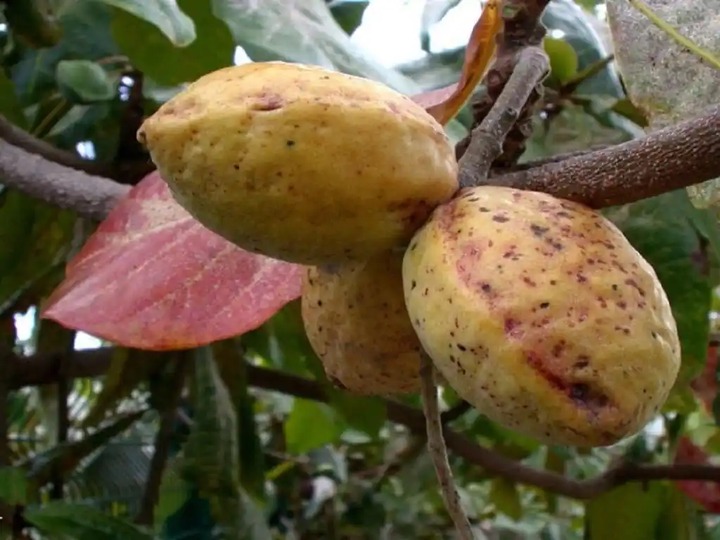Poisons: When it comes to nourishment, we often prioritize maintaining a healthy diet to promote well-being.
However, while certain foods offer numerous benefits, it is essential to be aware of the potential risks associated with some commonly consumed foods.
Surprisingly, there are various natural substances present in everyday foods that can lead to severe health problems or even prove fatal if consumed inappropriately or without precautions.
According to healthline, This article explores an assortment of commonly consumed foods that contain natural poisons, posing potential dangers to our health.
1. Bitter Almonds:
While almonds are generally considered a nutritious snack, bitter almonds harbor a hidden danger.
These almonds contain amygdalin, a compound that in the body breaks down into hydrogen cyanide, a potent toxin.
Consuming even a handful of bitter almonds can result in dizziness, headaches, breathing difficulties, and, in extreme cases, can prove fatal.
However, commercial varieties of almonds are typically sweet almonds, which are safe for consumption.
2. Cassava:
A staple food in many parts of the world, cassava is a root vegetable known for its starchy texture and versatility in cooking.
However, this seemingly harmless tuber contains cyanogenic glycosides, compounds that can release hydrogen cyanide when consumed.
Without proper processing, consuming raw or undercooked cassava can lead to cyanide poisoning, causing nausea, paralysis, and even death.
Properly preparing cassava by peeling, soaking, and cooking can significantly reduce the levels of cyanogenic compounds, making it safe for consumption.
3. Fugu (Pufferfish):
Considered a delicacy in certain East Asian countries, fugu poses a grave danger due to its tetrodotoxin content.
This potent poison is found mainly in the liver, ovaries, and skin of the fish.
Chefs skilled in fugu preparation meticulously remove these toxic parts, but the slightest oversight can lead to fatal consequences.
Tetrodotoxin blocks nerve impulses and can cause muscle paralysis, leading to respiration failure and, ultimately, death.
It is crucial to ensure that only certified, trained chefs handle the preparation of fugu to minimize the risk.
4. Raw Honey:
While honey is known for its numerous health benefits, raw honey should be consumed cautiously.
Raw honey may contain a natural toxin called grayanotoxin, found in the nectar of certain flowers commonly visited by bees.
When humans consume honey contaminated with grayanotoxin, it can cause “honey intoxication” or “mad honey disease.”
Symptoms include dizziness, weakness, excessive sweating, vomiting, low blood pressure, and in severe cases, cardiac arrhythmias.
Heat treatment or pasteurization destroys grayanotoxins, making commercially available honey safe for consumption.
5. Rhubarb Leaves:
The vibrant red stalks of rhubarb often find their way into delectable pies and jams, but caution must be exercised when dealing with the leaves.
Rhubarb leaves contain high concentrations of oxalic acid, which can lead to acute or chronic poisoning if consumed. Ingesting rhubarb leaves can cause severe gastrointestinal symptoms, including nausea, vomiting, abdominal pain, and even kidney damage.
Stick to enjoying rhubarb stalks while ensuring that the leaves are discarded, rendering the preparation safe for consumption.
6. Ackee Fruit:
Ackee, the national fruit of Jamaica, packs incredible nutritional value.
However, if improperly consumed, this fruit can turn deadly within hours. The unripe fruit contains a potent toxin called hypoglycin A. Eating unripe ackee can result in Jamaican Vomiting Sickness (JVS), causing hypoglycemia, vomiting, seizures, and even coma.
Thorough ripening, boiling, and proper removal of the toxic arilli are crucial steps to make ackee safe for consumption.
While our diets should primarily focus on wholesome and nutritious foods, it is critical to understand the potential dangers posed by natural poisons present in certain foods.
Each of the aforementioned foods contains natural toxins that can cause severe health complications or even be fatal if consumed without caution.
It is vital to be aware of appropriate processing techniques, certifications, or expertise associated with these foods to minimize risks and prevent harm.
Always exercise caution and seek expert guidance when it comes to consuming potentially dangerous foods, ensuring your journey towards optimal health aligns with safety as well.


